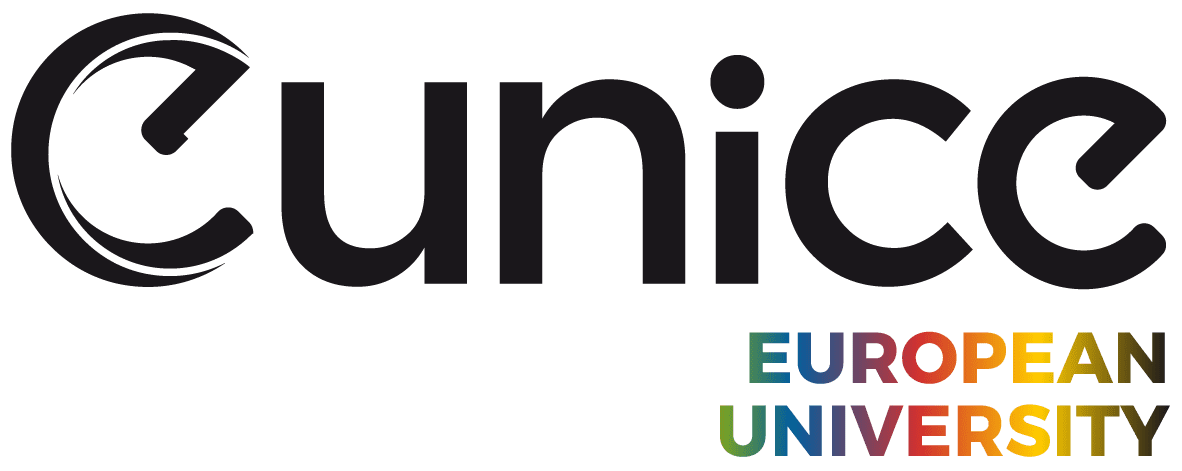Three EUNICE European University students participated in the discussion panels of the European Student Assembly gathered in Strasbourg
The European Students’ Assembly (ESA) was held at the European Parliament in Strasbourg from April 10 to 12, bringing together more than two hundred students from institutions involved in 41 European universities alliances to debate 11 key issues for Europe.
The European University EUNICE (European University for Customized Education) was represented by three students: Maria Luiza Cardoso from Polytechnic Institute of Viseu (IPV), Javier Montes from the University of Cantabria (UC) and Ilyas Sezgin from the University of Mons (UMONS) and by two members of staff, Maria Lobo from IPV and Daniel Quiroga from the Polytechnic University of Hauts-de-France (UPHF).
Each panel, made up of 20 students worked during the months prior to the ESA to discuss and draw up proposals about topical matters such as a safe enlargement of the European Union or its influence in the world, migrations artificial intelligence, sustainable development or inclusive initiatives in universities. The 11 panels consensuated and presented 82 recommedations that were voted in the Assembly and only three of them were rejected.
An experience for life
For Javier Montes, a member of panel 7 – “European heritage”, the European Student Assembly was “one of the most fantastic experiences” of his life, since he had “the opportunity to meet other people with different opinions about the European Union and education”, something he considers “very important for evolving as a person”.
The IPV student confesses that, in her opinion, the most important thing about the ESA was “creating proposals for the whole of Europe”, being “so important for various issues, such as education, sustainability, health and the European elections”.
One of the main lessons Ilyas Sezgin learned from the European Student Assembly was that “students can be part of the discussion on these issues” and that it can have “an impact on the future of Europe”. The student also said that “it’s more difficult than it might seem to be in an assembly drawing up and voting on proposals”, because there are “more than 200 opinions that have to coincide, which is extremely difficult”.
On the second day of the event, the alliances present were able to take part in the ‘Village of Alliances’, a meeting between European universities and students, with the aim of disseminate and making known all the opportunities of each one. The members of the alliances also had the chance to meet with the event organizers and a member of the European Commission, an opportunity to reflect on the biggest challenges facing European universities.

Objectives of ESA
• Voicing the opinion of EUA students from different countries, backgrounds, fields and levels of study, all recruited for their engagement and motivation.
• Fostering the participation of students within EUAs while reinforcing collaboration between them and increasing the impact and visibility of the EUA initiative.
• Advocating deliberative processes as a way to regenerate European democracy and to reduce the gap between citizens and decision makers.
• Encourage students to get involved in European politics at local, national and European level and increase their participation in European democratic processes.





